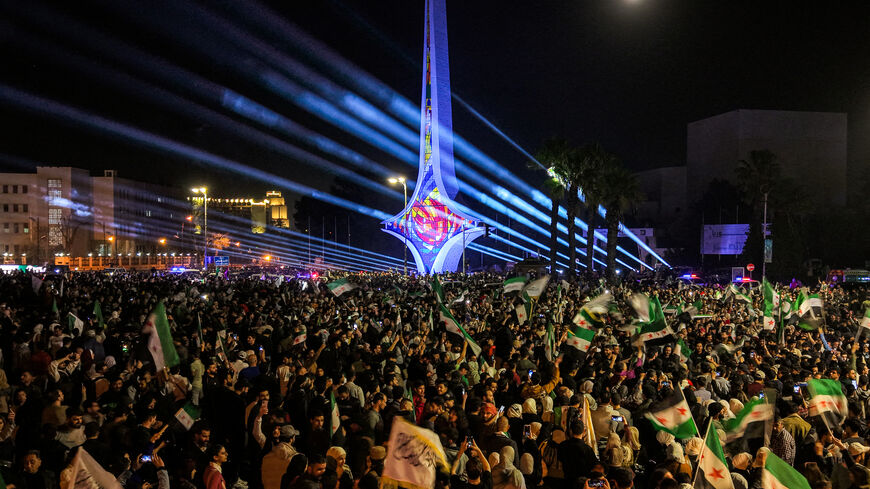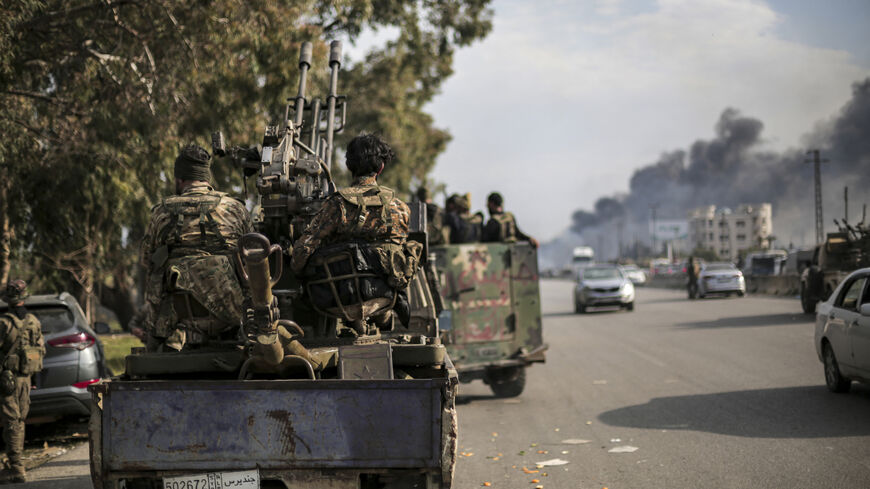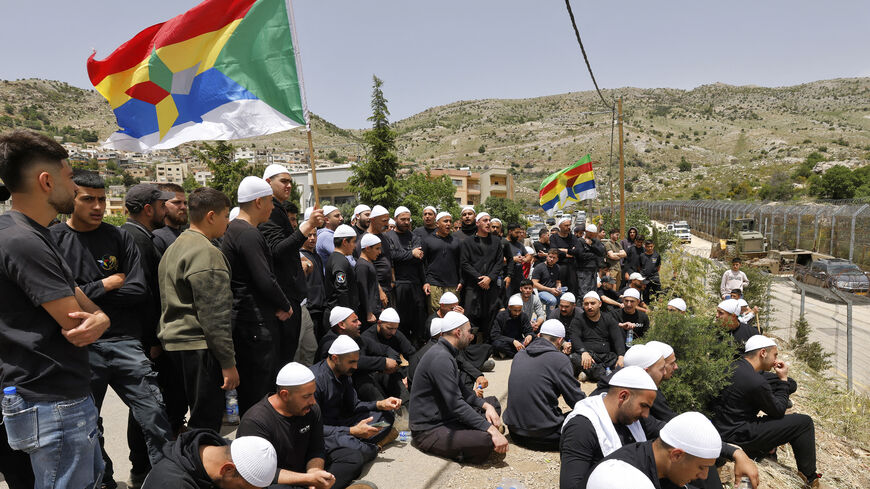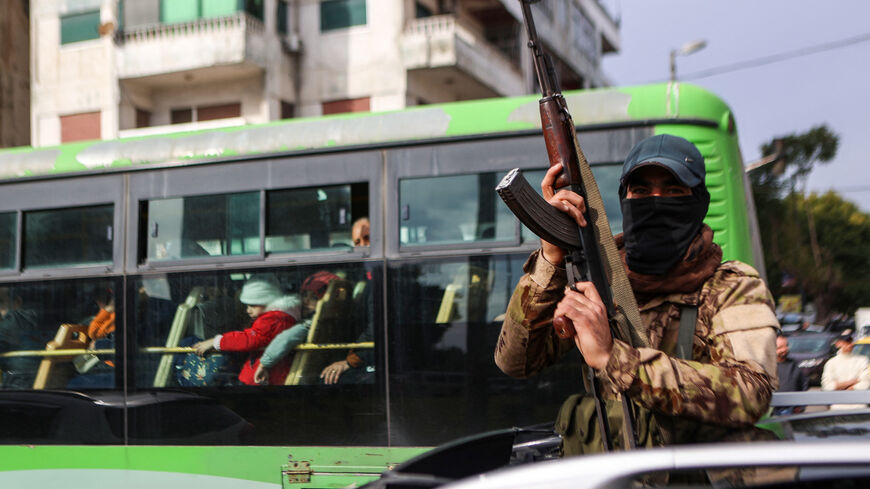Curfew extended in Syria’s Homs following Bedouin-Alawite clashes: What to know
A precarious calm returned to Syria’s central Homs province on Monday following a day of violent unrest triggered by the murder of a couple from a Bedouin tribe in the town of Zaydal.
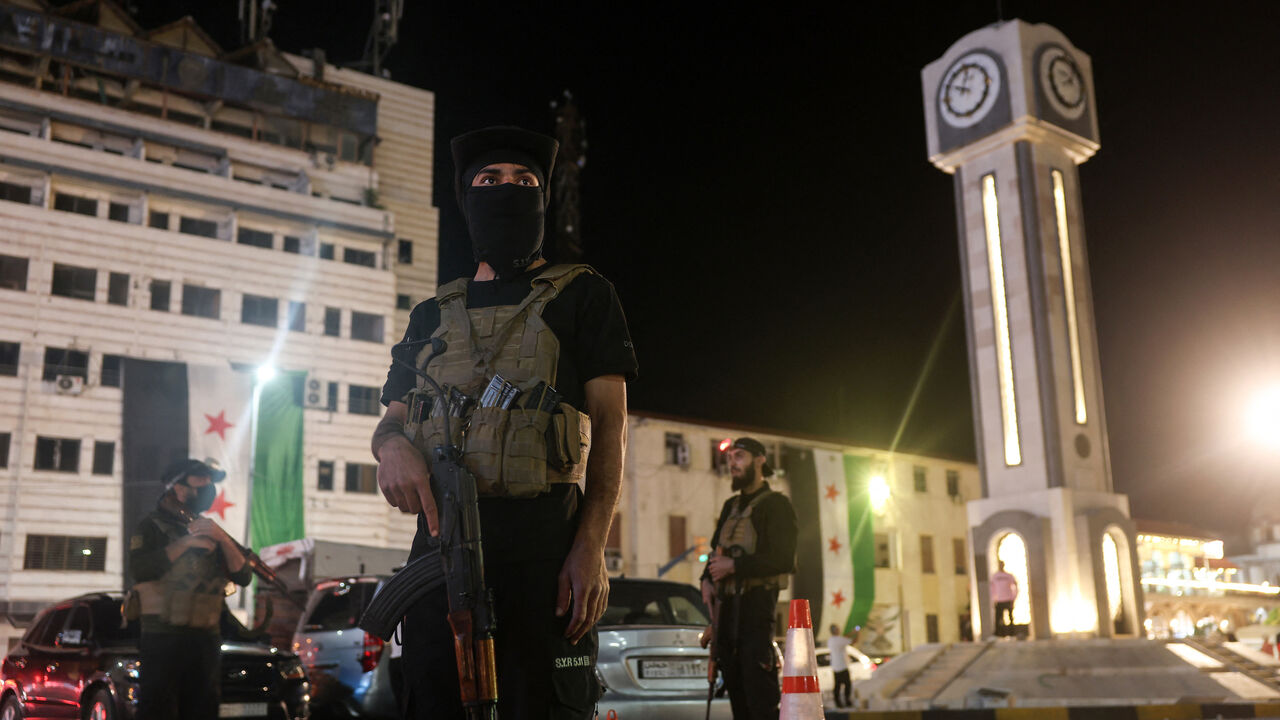
A precarious calm returned to Syria’s central Homs province on Monday as authorities extended a curfew and heavy security presence following a day of violent unrest triggered by the murder of a couple from a Bedouin tribe in the town of Zaydal.
The Internal Security Command of Homs announced on Telegram that the curfew will remain in place in the south of the province until 5 p.m. local time, affecting the neighborhoods of al-Abbasiya, Armenian, al-Muhajirin, al-Zahraa, Nuzha, Akrama, Nazheen, Ashira, Zaydal, Karm al-Zaytoun, Karm al-Loz, Hay al-Wurud and a police housing area.
What happened: On Sunday, security authorities imposed a curfew from 5 p.m. until 5 a.m. across the province after a series of attacks targeted Alawite-majority areas in the south of Homs.
The violence came shortly after a man and woman from the Bani Khalid Bedouin tribe were found dead inside their home in Zaydal, in southern Homs. The woman's body was reportedly burned and sectarian graffiti was found at the scene in what the Interior Ministry said was an attempt to sow sectarian strife.
The man was identified as Abdullah Al-Aboud Al-Nasser Al-Khalidi, who according to several reports is an imam, while his wife was not named.
In a statement, the ministry condemned the “heinous crime,” saying an investigation was immediately initiated and that it is doing all it can to protect civilians and stabilize the area.
The ministry called for restraint and urged residents to refrain from any retaliatory actions.
But within hours, armed members of the Bani Khalid tribe descended on the Alawite-majority neighborhoods of al-Bassel and al-Muhajirin, vandalizing and setting fire to private property and vehicles. They also shot at homes and shops. Random gunfire was also heard in the streets, the Syrian Observatory for Human Rights reported.
عدسة #المرصد_السوري: جانب من الاعتداءات على ممتلكات أبناء حي الأرمن في #حمص التي نفّذها مسلحون من عشيرة بني خالد pic.twitter.com/x7MYrlOy40
— المرصد السوري لحقوق الإنسان (@syriahr) November 24, 2025
The violence spread to other neighborhoods in the province as dozens of cars and motorcycles carrying armed men were seen in al-Sabil, al-Zahraa and al-Abbasiya shouting demands for revenge.
The Interior Ministry imposed the curfew and deployed security forces across the province, erecting checkpoints and conducting patrols.
Health authorities in Homs announced Monday that at least 18 people were wounded in Sunday’s violence.
The Supreme Alawite Islamic Council in Syria and the Diaspora said the assaults and attacks by Bedouin tribe members left two people dead.
”The inability of the de facto authorities to stop these clearly sectarian attacks and the persistence of such violations and assaults for nearly a year, place the lives of civilians from the Alawite community in Homs and other threatened areas in imminent danger,” the council said in a statement on Sunday.
Reactions: Interior Ministry spokesperson Noreddine al-Baba said late on Sunday that there was no physical evidence of the murder's motivations. In statements to al-Ikhbariah TV late on Sunday, Baba said the murder and the ensuing unrest was being exploited to incite sectarian strife.
Similarly, the couple's family refused to attribute the crime to sectarian reasons and affirmed their support for the authorities’ efforts to bring the perpetrators to justice, according to a statement released by the family and cited by SANA.
Several prominent Homs figures released a joint statement Sunday condemning the crime and expressed their full support for the authorities.
بيان للعشائر حول الأحداث الأخيرة في محافظة #حمص pic.twitter.com/EBrOliH1WW
— Al Modon - المدن (@almodononline) November 23, 2025
Addressing the wave of unrest, the tribes denounced any attempts to exploit the crime to incite sectarian violence and create social divisions. They expressed their “complete support for the state and its security measures, and their commitment to avoiding any attempt to drag the tribes into sectarian conflict,” calling on all residents in Homs to exercise restraint and comply with the directives and security measures issued by the authorities.
The Bani Khalid tribe also issued a statement denouncing the crime and the ensuing violence.
“We, the Bani Khalid tribe, categorically reject all forms of incitement, sedition and sectarianism. We emphasize that such criminal acts target civil peace and the unity of society and will only serve the enemies of stability,” the tribe said in a statement published by SANA.
“We declare our full support for the security forces and relevant authorities in uncovering the circumstances of this crime as quickly as possible,” the statement read.
Background: Homs is Syria’s third largest city with approximately 1.8 million inhabitants. Sunni Muslims make up the majority of the population, followed by Alawites, which follow an offshoot of Shiite Islam, as well as Christians and other minorities.
The Alawite community is mainly concentrated in the coastal areas of Syria. It had been a key base of support for former President Bashar al-Assad throughout the Syrian civil conflict.
But the community has faced attacks since the fall of the Assad regime in a rebel offensive led by the Islamist Hayat Tahrir al-Sham group last December. The London-based SOHR has documented at least 381 revenge killings in Homs since the beginning of this year, including 240 cases it identified as sectarian.
Know more: Last Tuesday, the trial of suspected pro-government fighters who killed hundreds of Alawites in March began in Aleppo.
In March, clashes between pro-Assad militias and security forces in Latakia and Tartous killed over 1,000 people, including 745 civilians. The violence triggered revenge attacks against the Alawite community.
Since becoming Syria’s interim president in January, Ahmed al-Sharaa has been working to consolidate his authority and present himself as a unifying leader. However, his efforts have faced significant challenges.
Sectarian clashes erupted between Sunni fighters and Druze residents in the town of Jaramana, located in the Damascus countryside, killing dozens in April.
More recently, the southern province of Suwayda witnessed bloody clashes between Druze and Bedouin fighters in July following a string of kidnappings by both groups. Government forces deployed amid reports of executions and targeted attacks against civilians.
The SOHR said that 1,339 people had been killed in the fighting. Among the dead are 196 people executed by government-affiliated forces and three people executed by Druze fighters.

